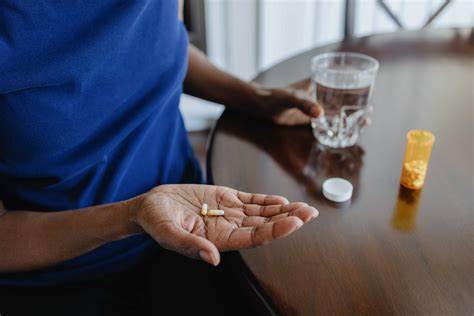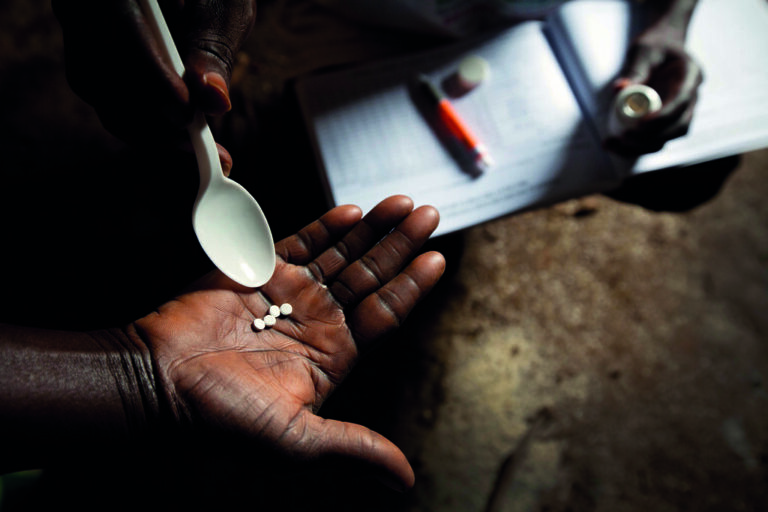The Truth About Typhoid: 5 Common Mistakes Nigerians Make When Treating It
Typhoid fever is one of the most commonly diagnosed illnesses in Nigeria, especially during the rainy season. It is not unusual to hear someone say, “I think I have typhoid,” as soon as they experience symptoms like fever, weakness, or stomach upset. Unfortunately, this widespread familiarity often leads to complacency and poor treatment choices. Many Nigerians treat typhoid casually, relying on hearsay, self-medication, or local mixtures that do more harm than good.
In this post, we will explore what typhoid fever really is, how it is commonly misunderstood, and five critical mistakes people make when treating it. More importantly, we will guide you on how to manage it properly and avoid falling into the same traps.
What Is Typhoid Fever and How Can You Get Infected?
Typhoid fever is a bacterial infection caused by Salmonella typhi. It spreads through the ingestion of contaminated food or water and thrives in areas with poor sanitation. In Nigeria, the disease is especially prevalent due to the combination of unreliable water supply, poor waste management, and low hygiene standards in many communities.
Symptoms of typhoid include:
- Persistent high fever
- Weakness and fatigue
- Headache
- Abdominal pain
- Constipation or diarrhea
- Loss of appetite
- In some cases, rashes
If left untreated, typhoid can lead to severe complications like intestinal perforation, internal bleeding, or even death.
5 Common Mistakes Nigerians Make When Treating Typhoid
1. Assuming Every Fever or Weakness Is Typhoid
One of the biggest issues is the tendency to self-diagnose. Many Nigerians equate any form of fever, tiredness, or digestive discomfort with typhoid. The symptoms of typhoid can overlap with other common illnesses like malaria, food poisoning, or even stress-related fatigue.
Why it is a problem:
Treating the wrong illness not only delays recovery but can worsen the actual condition. Misdiagnosis also contributes to unnecessary antibiotic use and resistance.
What to do instead:
Get tested before starting any treatment. A proper diagnosis is crucial.
2. Using Antibiotics or Herbal Mixtures Without Testing

The next mistake is heading straight to the nearest chemist or self-proclaimed herbal expert. Without any form of testing, people are given a cocktail of antibiotics like Flagyl, Ciprofloxacin, or local “cleansers.”
Why it is a problem:
- Wrong antibiotics may be prescribed
- Drug resistance can develop
- Herbal mixtures may contain harmful or unknown substances
What to do instead:
Visit a certified pharmacy or hospital for appropriate testing and treatment. Do not guess your way to recovery.
3. Not Completing the Full Course of Medication

Many patients begin treatment but stop taking their medication once they start to feel better. Typhoid treatment usually lasts between 7 to 14 days, depending on the drug and severity.
Why it is a problem:
- Incomplete treatment leads to a relapse
- Increases bacterial resistance
- Wastes time and money
What to do instead:
Always complete the full course of your medication as prescribed, even if your symptoms disappear.
4. Skipping Proper Laboratory Tests
In many cases, people rely solely on verbal symptoms or physical observation. Laboratory tests such as the Widal test or stool/blood culture are often ignored.
Why it is a problem:
- You cannot confirm typhoid without a lab test
- Misdiagnosis leads to the wrong treatment
- A single test might not be sufficient. Widal tests can sometimes show false positives
What to do instead:
Get proper testing from a reputable lab. For more accuracy, a blood or stool culture test is recommended.
5. Ignoring Preventive Measures After Recovery
Even after being treated, many people return to the same poor hygiene practices that exposed them in the first place. Typhoid is preventable, but recurring cases are common because preventive habits are often neglected.
Why it is a problem:
- Repeated infections
- Risk of spreading the disease to others
- Long-term health complications
What to do instead:
- Boil drinking water or use water filters
- Wash fruits and vegetables properly
- Avoid roadside food that may be unhygienic
- Wash hands regularly, especially before eating or after using the toilet
The Right Way to Handle Typhoid
Treating typhoid does not have to be complicated if done right:
- Get Tested: Always start with a lab test before taking any medication.
- Consult a Health Professional: Speak to a licensed pharmacist or doctor, not just a chemist.
- Use the Right Medication: Follow prescriptions and ensure you buy medicines from trusted pharmacies.
- Complete Your Dosage: Finish your drugs to avoid relapse and resistance.
- Practice Good Hygiene: Prevention is always better and cheaper than cure.
At Mariam Grey Pharmacy, we understand the frustrations that come with wrong treatment and wasted money. That is why we offer a one-on-one consultation with a registered pharmacist here for proper drug use. You can also get affordable hygiene and immune support products on the website.
If you need to confirm your symptoms or require expert guidance, our trained professionals are ready to help you receive the right care, from diagnosis to full recovery.
Visit our store today or contact us for advice. Your health should never be a guessing game.
Typhoid fever remains a serious health challenge in Nigeria, but with proper awareness and treatment, it does not have to be life-threatening. Avoid the common mistakes outlined above and take your health seriously.
If you or someone you know has symptoms, do not jump into self-treatment. Get tested, seek professional help, and make hygiene a daily habit.







